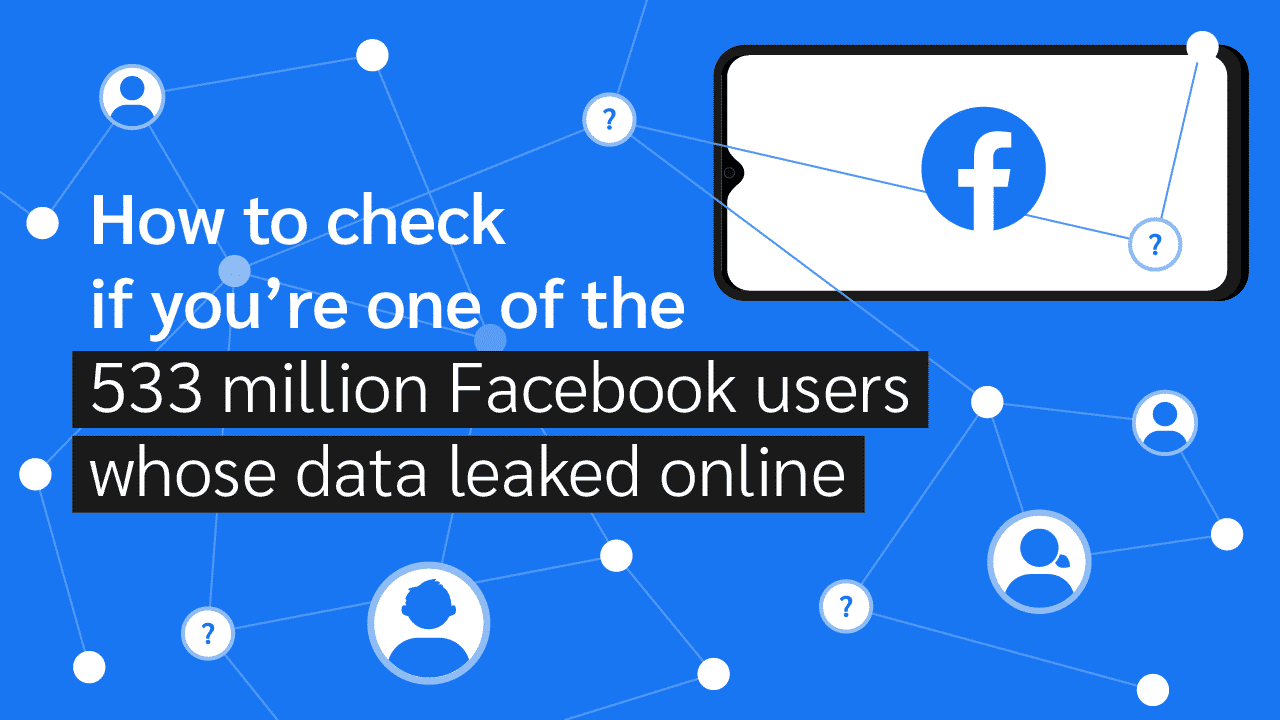How To Check If You’re One of the 533 Million Facebook Users Whose Data Leaked Online
Billions of people today use various social media platforms. They provide all sorts of private information to these platforms, including birth dates, location, phone numbers, and email addresses. In turn, these companies guarantee the security of their safety.
Recently, millions of Facebook users’ records were leaked for free and made accessible on a website. It serves as an unfortunate reminder that social media sites like Facebook aren’t 100% secure and suffer data leaks.
Data leaks leave you at the mercy of hackers and other intruders. Facebook’s leak exposed information from 533 million user accounts for free.
Facebook’s Data Leak
According to a cybersecurity company, Hudson Rock, Facebook experienced a breach in 2019, and unknown parties leaked personal information linked with 533 million accounts for free.
Whoever was responsible gained access to their names, birth dates, phone numbers, email addresses, locations, relationship statuses, bios, and account creation dates.
The 533 million accounts affected belong to people in over 90 countries. Over 32 million belong to people in the United States, 11 million in the United Kingdom, and 6 million in India.
Facebook has explained that a third party exposed the leaked data from an earlier breach in 2019. According to them, the issue was discovered and rectified in August 2019. However, the data is now available to anyone online.
The kind of information leaked, such as birthdays, email addresses, and phone numbers, is not the kind that many users change regularly. It means that the data has some value to whoever wants access to them.
Facebook believes that hackers took advantage of a vulnerability in its contact importer, which has now been taken care of. Although the information is now accessible online, the social media giant announced that they wouldn’t notify affected users. So what exactly are the consequences of the data leak for you?
How Does This Leak Affect You?
The leak issue is a clear indication of some of the risks you face with having your information online. However, some experts believe that there is no cause for panic, as it could have been worse.
Data breaches due to a system failure or hacking activities are no longer shocking news. As long as you use social media services like Facebook, you willingly place your personal information within reach of whoever decides to take it.
In truth, there isn’t much damage that hackers or other third parties could do with the sort of information made available by the most recent Facebook data leak.
With more developed security systems like Two-Factor Authentication (2FA) and One-Time Passwords, hackers would need more than your birthday or mobile number to gain access to your social media or financial accounts, to do serious damage.
Nonetheless, scammers could use your personal information to clone your identity to deceive your friends and business associates. They could also use such information to reset your login credentials or steal your credit card numbers.
How To Check If Your Data Was Leaked
Most people wonder if they are among the 533 million affected users, with no clue how to check.
Although Facebook has stated that they won’t tell you if the breach leaked your information online, you could still check by visiting a website called ‘Have I Been Pwned?’
On this website, you can check to see if your Facebook information is now available for free online. You have to type in your phone number or email address and search through millions of contact information on the site.
The problem with this method is that you can only check with phone numbers and emails. Many people use the same information on several platforms online, so even if your data comes up as breached, Facebook might not be the source.
Also, of all the 533 million accounts affected, only 2.5 million include email addresses. So without an email address, you cannot check through haveibeenpwned.com’s database.
How To Protect Yourself From Data Leaks
As much as internet security improves over the years, bad guys are also upping their game. There are now so many ways you could fall victim. Regardless of the possible causes of data leaks, you are not entirely helpless.
Here are a few helpful tips on how to protect yourself in cyberspace:
Use Stronger Passwords
Opting for a more secure password other than ‘password1234’ is one simple way to protect yourself online. Hackers have tools for cracking passwords, so when your password is very basic, hackers could easily get through your defense like a hot knife through butter.
Make your password more complex or complicated, but something only you know or remember. These days, you no longer have to worry about coming up with complex passwords and retaining them. Google can generate strong passwords for you and automatically back them up for you. Alternatively, you can use 1Password to create and save strong passwords.
Enable Two-Factor Authentication
Two-Factor Authentication (2FA) is a powerful security tool that makes it even harder for hackers to access your private information.
With 2FA, your account remains locked until you have provided a sort of verification a third party would normally not have. Examples of 2FA include SMS token authentication, email token verification, biometric verification, and security questions.
Conclusion
With social media sites, you’re never completely safe, so it would be best if you kept an eye out for risks and possible breaches. If you think Facebook’s breach has exposed you, you could quickly check on haveibeenpwned.com. You can also protect yourself from data leaks with our suggestions and stay safe online.

